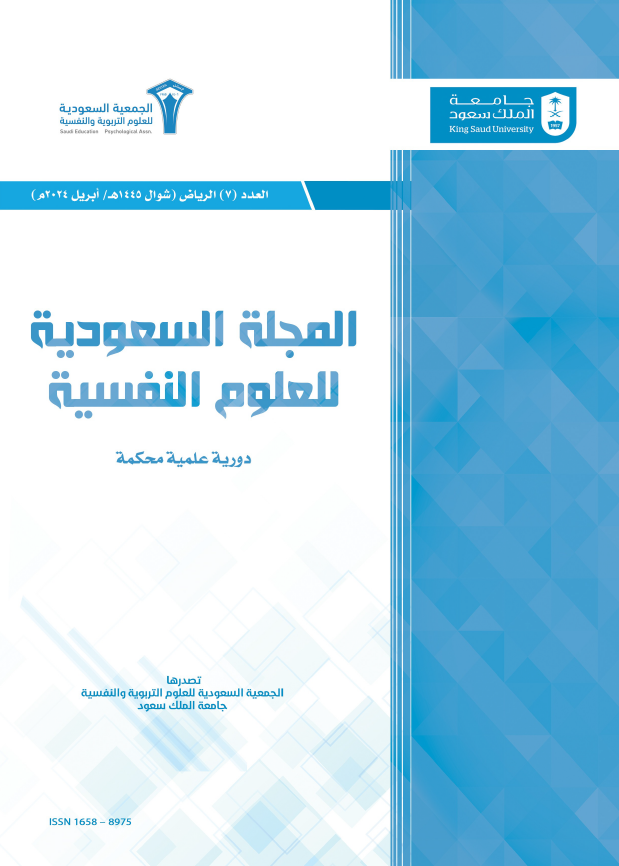Self-Efficacy as a Moderator Variable to the Relationship between Dissociation and Suicidal Ideation among a Sample of Saudi Youth
Keywords:
Self-Efficacy, Dissociation, Suicidal Ideation, Youth, Mental HealthAbstract
The study aimed to investigate the role of self-efficacy as a moderator variable for the relationship between dissociation and suicidal ideation among Saudi youth. In addition, the study measures the differences in self-efficacy, dissociation, and suicidal ideation according to gender and occupation. The sample consisted of 157 young men and women in the age range of 17-45, with an average of (24.43± 7.015). To collect the data, the researcher used the general self-efficacy expectations scale translated by Radwan (1997), the dissociative experiences scale II prepared by Carlson and Putnam (1993), and the suicide ideation scale translated by Fayed (1998). The results showed that there is no effect of self-efficacy on the relationship between dissociation and suicidal ideation. And that there are no statistically significant differences in self-efficacy, dissociation, or suicidal ideation according to the difference in gender. There are no statistically significant differences in self-efficacy and dissociation according to the difference in the occupation, and there are statistically significant differences in suicidal ideation due to the difference in the occupation in favor of the occupation as a student. Considering the study results, the researcher made some scientific recommendations and future proposals.

